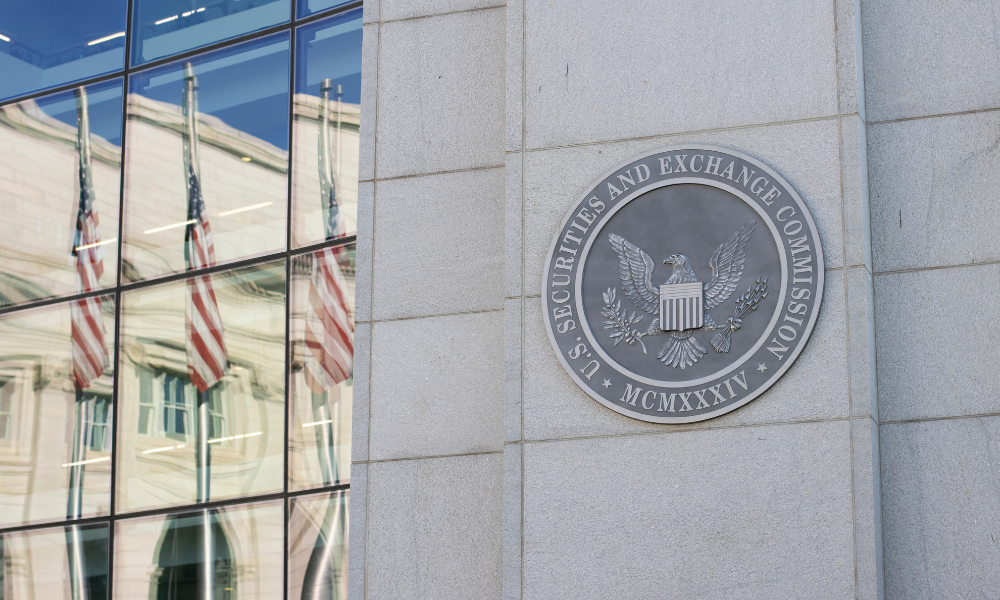

A California insurance salesman was operating as an unlicensed broker when he sold more than $4 million in securities to clients in an energy fund that was later charged with fraud, the Securities and Exchange Commission stated in an order Monday.
According to that settlement, the insurance salesman, David C. Underwood, acted as an unregistered broker-dealer between February 2020 and December 2021 and raised approximately $4.3 million for two funds of Heartland Group Ventures, which the Commission charged with fraud in December 2021.
Underwood sold unregistered Heartland fund securities to 20 individual investors, including his wife, both directly and indirectly through a “feeder fund,” a company that Underwood wholly owned and controlled, according to the SEC’s settlement.
“Underwood, among other things, solicited investors directly and indirectly to invest in certain Heartland offerings, provided advice to investors relating to the Heartland offerings, assisted investors in completing investment documents, assisted investors in transferring their funds to Heartland, and received transaction-based compensation from Heartland for those sales,” according to the SEC.
Insurance salesman are not licensed to sell securities, although customers at times can be confused by the different licenses financial services professionals must have to sell investments.
Underwood, who is based near Los Angeles, could not be reached for comment Tuesday afternoon.Tthe phone number listed in his profile with the California Department of Insurance was out of order. According to the department’s website, Underwood remains licensed to sell insurance through 2026.
As part of the settlement, he agreed to pay disgorgement of $146,000, interest of $26,000, and civil penalties of $50,000 to the SEC. He was also barred from the securities industry, although he is not a licensed broker.
According to Reuters, the SEC alleged that Heartland and its affiliates took $122 million from 700 US investors, purportedly for oil and gas projects, but used much of the funds to pay off other investors and for other purposes.
Heartland used insurance agents and financial advisors to sell funds and solicit customers, according to the SEC.
“Between October 2018 and early 2019, Heartland relied on a network of sales agents, primarily insurance agents and financial advisors whom Heartland called ‘finders,’ to solicit prospective investors to invest in one or more of the five unregistered Heartland offerings,” the SEC stated.
“Beginning in early 2019, Heartland shifted to raising funds through a ‘feeder fund’ model, in which a ‘feeder fund manager,’ typically the same insurance agents and financial advisors who acted as Heartland sales agents, solicited prospective investors through a new company formed for the primary purpose of soliciting investments in Heartland.”
Starting in at least 2019, Heartland and its principals used investor funds to make more than $26 million in Ponzi payments to debt fund investors, according to the SEC.

“Unless he has to leave for fraud”.

Hardliners give way to pressure to approve consideration of bills.

Financial resilience is at risk as cost of living strains budgets.

A drop in interest rates and easier access to capital has reignited appetite among private equity-backed consolidators, who accounted for 53% of RIA deals so far this year- their highest share since 2021 according to DeVoe & Company.

Also, Advisor CRM announces a new data integration partnership to ease the pain of client onboarding.
Orion's Tom Wilson on delivering coordinated, high-touch service in a world where returns alone no longer set you apart.
Barely a decade old, registered index-linked annuities have quickly surged in popularity, thanks to their unique blend of protection and growth potential—an appealing option for investors looking to chart a steadier course through today's choppy market waters, says Myles Lambert, Brighthouse Financial.
